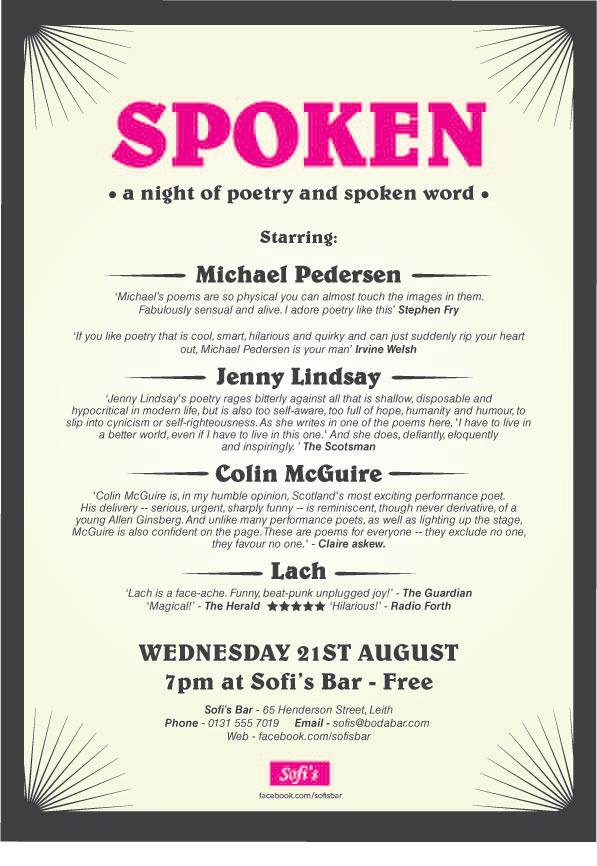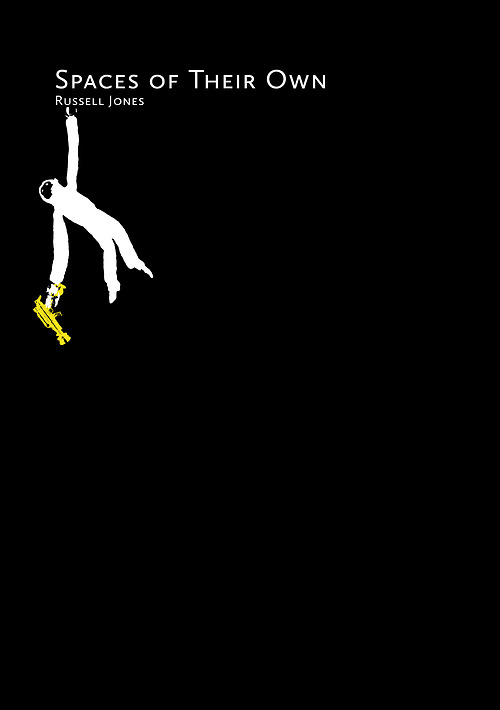Ire & Salt by Jenny Lindsay
– Reviewed by Alice Tarbuck –
Jenny Lindsay is a performance poet and Slam Champion who was an extremely active member of National Collective in the run-up to the Scottish Independence Referendum. Her pamphlet, Ire & Salt, is a selection of extracts from her upcoming one-woman show, based around her experiences in the run up to, and after, the Referendum.
The titular poem is comprised of five parts, with returning images of ‘ire’ and ‘salt’ pointing the way, through anger and tears, to the ideological backbone of Lindsay’s work:
I see ire and salt in those saltires waving
but were national not –ist nation not –ist national culture –ist
no, not nationalist
Many of the political gradations that Lindsay’s poetry explores, whilst keenly felt by those engaged with the referendum process on both sides, will be lost on a broader audience. The struggles of Scotland’s various Yes campaigners to avoid the stigma of nationalism, here explored through circumlocution and grammatical disruption, were a particularly pressing concern.
The personal and political are inextricable in Lindsay’s work, which speaks of the difficulty of expression that straddles two registers. The effect of politics on the self, and of the self on politics, is probed in the final poem in that sequence, ‘Sodium’:
From a distance I watched as you anchored,
claiming continuation, as the salt lapped
upped your sides, sodium preserving your importanceI needed one final jaw thrust,
for silence is complicity.
So this mouth
jutted out and took back its power
in the thudding aftermath. These reflections.I never needed any direction.
Ire & Salt feels like a process of metamorphosis, and this, the final few stanzas of the collection, sees the poetic voice as one that requires no direction, free from previous constraints to explore pertinent issues. What can be said by a ‘jutting mouth’ in order to regain power is of central concern to this collection.
Alongside politics, this pamphlet addresses a variety of other concerns that are considered private or somehow shameful. Lindsay writes touchingly and openly about mental health, particularly the medicalisation of illness. In ‘Today’, she both attacks and participates in the medical device of listing experience on a scale of one to ten to determine severity. Here, she uses a listing structure in order to explore the ways in which anxiety and depression differ on a daily basis:
Today is a 7. Gallant of mind and of body, pretty much –aye. 7. Pretty braw, yeah- how’s you? 7. Sweet and sparkly like my game face but not pretending. Nae need for acting. It’s great. & is great. Today is a 7.
Lindsay’s prose poem is compressed into a solid block of text, within which sentences are short and frequently fragmented. This tension between the overwhelming prose block and the sentences that do not always communicate meaning works mimetically, invoking the chaos attempting to interpret the self while experiencing depression and anxiety. What is perhaps most interesting about this work is the ever shifting tone – there are moments in Scots, moments where literary works leak in. ‘Gallant’ is modified into ‘braw’, and both sit alongside the ‘sweet and sparkly’ without apparent contradiction. This work skilfully evokes the extent to which mental illness can co-opt all of the separate narratives of the self into its grip, leaving nothing untouched. This is perhaps the most immediately moving poem in the pamphlet, and one that benefits hugely from being heard aloud.
Jenny Lindsay’s pamphlet is full of power, politics and questions about how we verbalize the things that matter most. It is formally innovative, but maintains performance poetry as its key formal concern, with the versification always lending itself to live performance. It is a complex work, with political aspects that are perhaps not widely accessible, but which are nevertheless engaging in their presentation.





